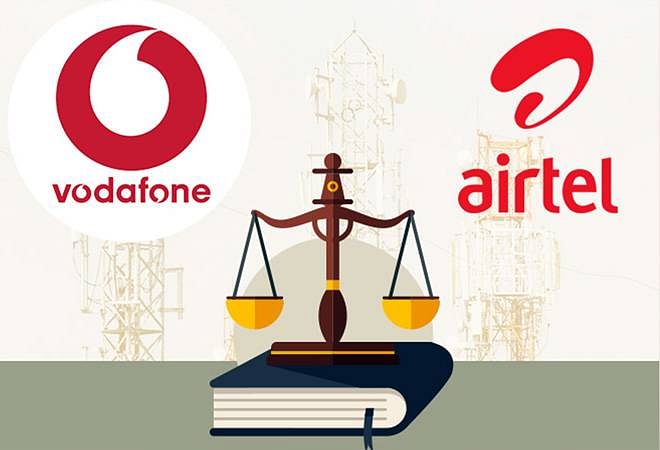The entire Telecom AGR saga

What is AGR- Adjusted Gross Revenue?
Whenever a company makes money, they are liable to pay tax to the government. Telecom companies charge Interconnect Usage Charge (IUC) but it is not a part of the income which stays with them. They have to pass it to different operators. Thus, this charge only inflates their total revenue. It won't be fair if the government taxes a telecom company on this inflated number. Hence, the total gross revenue is adjusted downwards which is known as Adjusted Gross Revenue.
Where it All Began
After 1994, telecom companies were allowed to operate in a fixed license system which was very expensive. From 1999, the government allowed the telcos to migrate from the expensive license-based model to the revenue-sharing model. This model helped the company to share a part of what they earned rather than paying out a high fixed amount. The payment under the new model was divided into two parts annual license fee (LF) and spectrum usage charges (SUC). The former would be 8% of AGR and the latter would be 3%-5% of AGR.
This AGR was the base of the argument which started in 2005 when the Cellular Operators Association of India (COAI) challenged the definition of AGR calculation that was followed by the government. This leads us to dive deep into the definition given by both the parties and the dispute which continued for a decade and a half.
The "AGR Definition" Dispute
The telecom companies believe that the government should be charging tax from the revenue generated only from the core business and not from other businesses. For example, a telecom company like Airtel will generate revenue not only by providing services in the telecom area but also by selling off its assets or by investing in equities or bonds.
Now, the DoT says that AGR includes the revenue generated by the company as a whole and not only from its core business. They believe that companies are earning revenue only because they are allowed to do business in the country. Hence, they are liable to pay taxes on their total AGR, no matter if it is coming from the company's core business or the non-core business.
We bring you a timeline of things that have shaped this whole saga -
October 24, 2019
The judgment day. After 14 years of indecision and uncertainty, the Supreme Court of India announced their mammoth verdict. The SC decided to widen the definition of AGR and include revenues coming for non-core items for taxation. The bombshell was that the apex court has asked the companies to pay all their dues amassing Rs 1.19 lakh crore by 23rd January 2020.
January 23, 2020
Vodafone Idea, Bharti Airtel and others miss the deadline citing poor financial health of their companies. The government also asked DoT not to take any action against the defaulting on payments.
February 14, 2020
As expected, the red-hot SC blasted the Centre, DoT and the telecom companies for not respecting their orders. The apex court declared March 17 as the new deadline for the companies to clear all their AGR dues.
March 18, 2020
In the past few weeks, telecom companies started clearing their dues but only partially. Supreme Court was asked to give 20 years for companies to clear their AGR dues. The apex court fiercely rejected the idea and also declared that companies won't be allowed to self-assess their dues.
June 18, 2020
Supreme Court cooled its stance a tad bit. They asked the companies to present a detailed plan of action as to how they intend to clear their dues. This plan of action should consist of the years that the companies would be asking for and the guarantees they will be giving in the meantime. No allowance for staggered payment would be issued if companies fail to provide adequate bank guarantees and a proper roadmap for payment in upcoming years.
July 20, 2020
The Supreme Court reserved its orders for the AGR payment timeline. They reiterated that the calculation done by DoT is final and binding. Vodafone accepted the dues levied on them but requested 15 years to pay back the dues. Their counsel stated that the company is in "deep waters". They even asked the government to retain the Rs 8,000 crore worth of GST refunds for this year.
With all this, the Supreme Court voiced their concern on how they can "rely" on a company to pay their dues in future if they already are in shambles. The next hearing is scheduled on 10th August 2020.
AGR Dues for Vodafone Idea:
Dues Outstanding: Rs 58,254 crore
Dues Paid: Rs 7,854 crores
Balance Due: 50,400 crore
Vodafone's counsel told the Supreme Court that the company is "barely afloat". If the apex body forces the company for an upfront payment, they will be forced to shut down their operations in India which will directly impact over 1100 employees.
AGR Dues for Bharti Airtel:
Dues Outstanding: Rs 43,980 crore
Dues Paid: Rs 18,004 crore
Balance Due: Rs 25,976 crore
Airtel has paid 60% of the total dues paid by the telecom companies till now. Several analysts believe that Airtel is in a much better financial condition when compared to Vodafone and will be able to pay its dues soon. Doubts remain on the survival of Vodafone Idea.


Post your comment
No comments to display